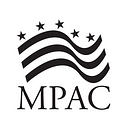What is Our Rescue Plan for Small Businesses?
Ahead of the March 14 deadline for President Biden to sign the new COVID relief package into action, MPAC is releasing a 3-part analysis of the expected legislation through a human security framework. In each installment, we analyze and provide recommendations on the three major pandemic-induced issues we have identified that are obstructing human security for Americans:
- discrepancies between and inequities in state vaccine distribution,
- the struggle to meet the needs of communities most vulnerable to COVID-19, and
- the plight of small businesses in the face of lockdowns and widespread economic insecurity.
These cross-cutting issues inevitably impact every American and therefore need immediate attention from all levels of government and relevant civil society actors, including MPAC. In the first piece of the series, to resolve Issue 1, we advocated for a balance between a centralized and decentralized approach to the process, whereby the national government would streamline state eligibility criteria and vaccine administration and state governments would strategize how to best meet the needs of at-risk populations. In our second piece, where we dived into Issue 2, we recommended the development of a federal program that includes local vaccine awareness campaigns involving trusted Black medical professionals and community leaders to mitigate vaccine hesitancy in Black communities. We also proposed the creation of a comprehensive medical equity task force that goes beyond COVID-19 to report on medical racism in national, state, and local settings and determine where more funds are needed to increase access to basic and critical healthcare needs. In this third and final piece, we will dissect Issue 3 to better understand the needs of small businesses and examine how the American Rescue Plan will bolster their economic security to strengthen human security for all Americans.
Issue 3: The Plight of Small Businesses
Earlier this week, the American Rescue Plan passed the House and is now in the Senate. While the passage of the bill through the House was considerably smooth, Senate passage is expected to be bumpy. Senate Democrats will no longer push for a $15/hour minimum wage. To appease moderate Democrats in the Senate, President Biden has agreed to narrow the income eligibility for the $1,400 stimulus checks, barring individuals with income higher than $75k and couples earning greater than $150k from receiving the full amount. Senate Republicans are expected to add amendments to the bill, which will likely seek to reduce spending on provisions such as paid leave for federal employees and unemployment insurance. With the Senate looking to trim down essential relief provisions that Americans nationwide need to survive in the pandemic, small businesses may also become victims of reduced stimulus.
Small businesses form the backbone of the American economy, employing over 47% (about 60.6 million workers) of United States employees. COVID-19 has caused more than 100,000 small businesses to shut permanently. In turn, these closures have brought about a serious unemployment crisis. Unless small businesses receive the support they need to survive the pandemic, their closures and the resulting unemployment will inevitably spell out drastic consequences for the American economy. That greatly impacts American Muslims, too. According to a 2011 report by the Pew Research Center, 20% of American Muslims are either self-employed or a small business owner. In December 2020, MPAC Policy Programs Manager Baqir Mohie El-Deen called for “unprecedented actions to protect small businesses from the COVID-19 virus as it follows the guidelines set by the CDC”. Our call remains the same: small businesses are hurting, and they absolutely need the federal government to provide them with a lifeline.
The House Committee on Small Business, chaired by Rep. Nydia Velázquez (D-NY 7), passed their section of the reconciliation bill, providing small businesses with $50 billion in emergency aid. Key provisions of the House version of the bill include: $25 billion for a new program at the Small Business Administration (SBA) to assist restaurants and other food and beverage establishments; $15 billion for the Targeted Economic Injury Disaster Loan (EIDL) Advance program; grants of up to $10 million per restaurant entity, with a limitation of $5 million per physical location; and an additional $1.25 billion for the SBA Shuttered Venue Operators Grant Program. The $25 billion in grants (rather than loans) for restaurants, who have been among the hardest hit of small businesses in the past year, is particularly noteworthy and is a welcome inclusion in the bill. As the Senate gears up to vote on the American Rescue Plan this week, it will be important to see how much of the spending appropriated for small businesses makes the final cut.
Economic security, which ensures that every American can support themselves through productive work or, if all else fails, through public social welfare programs, is an integral component of human security. For our government to protect us from a pandemic-induced economic disaster which will only lead to more job and food insecurity, it must revitalize small businesses across the country. To start, the Senate needs to pass the full provisions the House cleared for small businesses in the American Rescue Plan. Beyond the pandemic, federal agencies like the Small Business Administration (SBA) will need to guide small business owners on how to prepare for future emergencies and share best practices.
